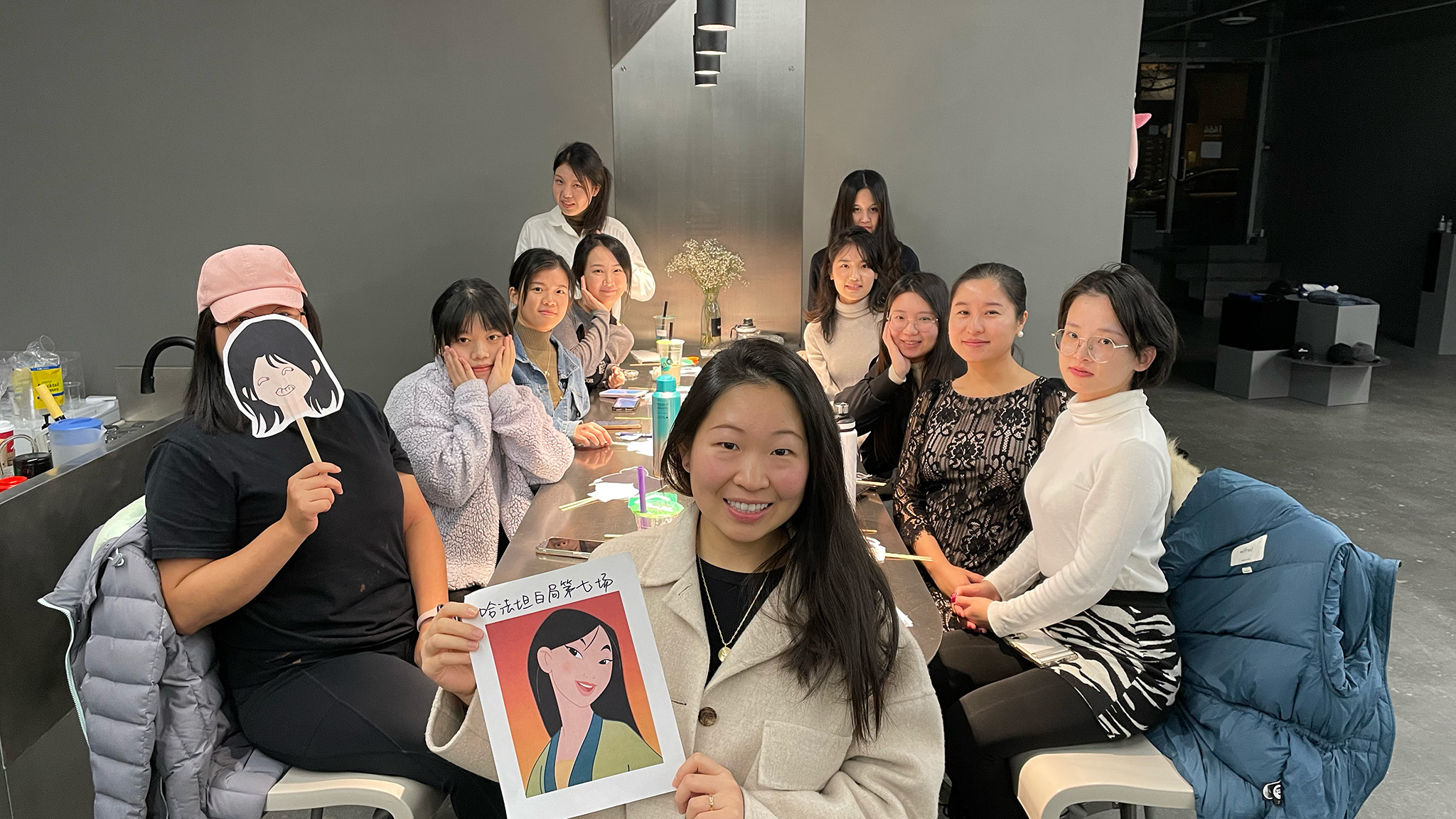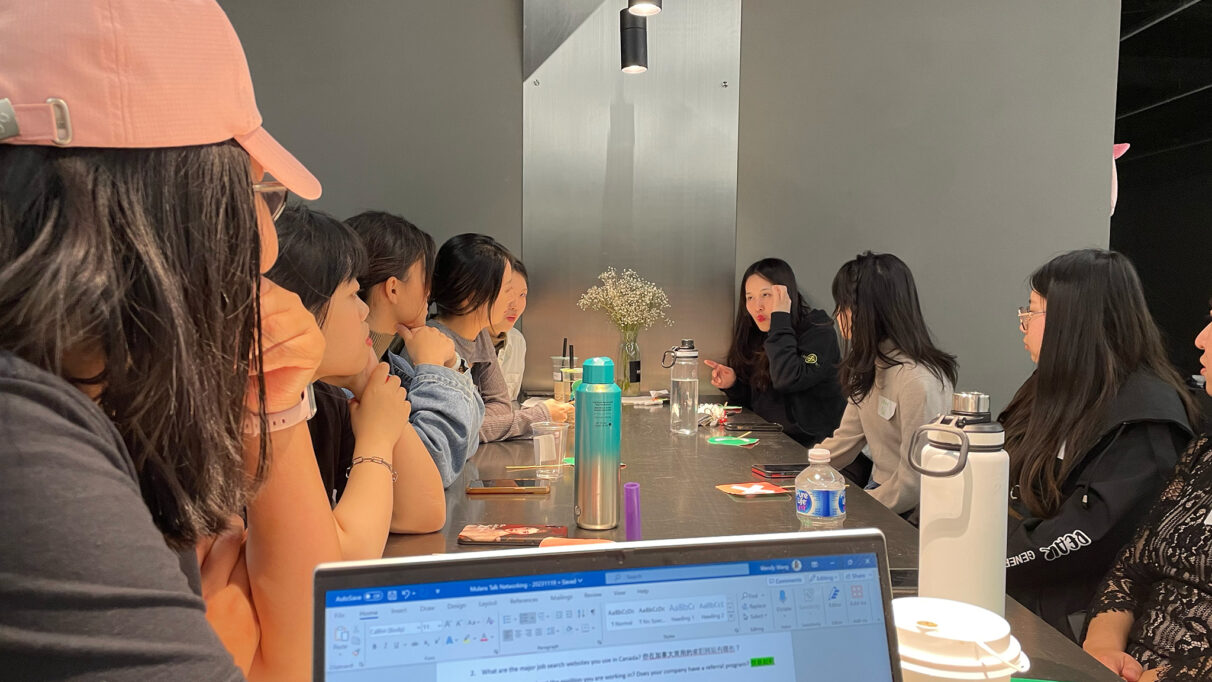Mandarin networking helps Chinese women with career development
Sessions focus on value of networking, mutual support

caption
Wendy Wang said she is inspired by the power of women's mutual support.Almay Chai faced a series of challenges in trying to find work in Canada’s health care system, but a Halifax networking event focused on mutual support among women helped her see a career path more clearly.
This Sunday was Chai’s second time coming to the event at Brenton Street in downtown Halifax, and she still found it very rewarding. She met with nine other Chinese women, all speaking Mandarin, to exchange information on employment opportunities in the healthcare industry.
After completing five years of undergraduate medical studies in China, Chai came to Canada to continue her quest to become a doctor, but she found that the cumbersome accreditation for foreign medical education and lack of local work experience were the biggest barriers to her entry into the health-care system.
She finished a master’s degree in nutrition in Halifax, hoping to find another way into hospitals but ended up working at a hotel receiving guests.
“I put a lot of effort into studying medicine, and I was convinced that I was suited to be a doctor,” Chai said in an interview conducted in Mandarin. She heard another woman at the event share how she started out with volunteer work to gain experience in the industry and managed to get a full-time pharmacy job and thought that might be a good option.
Chai is not alone in failing to transfer her expertise to a matching job. A recent study reported that Canada is losing increasing numbers of immigrants, who eventually move on to other countries. It pointed out one of the main reasons is the difficulty newcomers have in finding jobs commensurate with their qualifications and experience.
A report by Statistics Canada in January suggested that the racialized population in Canada also earns less than non-racialized and non-Indigenous graduates, despite often having a higher level of education than the national average.
“Employment income averaged $45,700 per year for racialized women and $47,800 for non-racialized and non-Indigenous women, compared with $51,600 for racialized men and $54,100 for non-racialized and non-Indigenous men,” said the report.
And that’s why Chai would love to keep coming to this event, where attendees share their favourite networking platforms, exchange work environment information and encourage each other to deal with bottlenecks in careers.
“Their kind sharing helps me break the information gap,” said Chai.

caption
Each participant is asked to share their personal experience and advice objectively.Wendy Wang, the organizer, also started this networking series with the same consideration. Wang said Chinese people, as a minority group in Canada, face numerous challenges in finding jobs. In addition to the language barrier and culture shock, the unfamiliarity with networking is an even greater difficulty.
“Networking is a rather new concept to Chinese newcomers because we don’t really have a thing like coffee chat in China,” said Wang, “so I set out to create an environment entirely in Chinese for them, where they can feel comfortable speaking in their native language with strangers, learning to ask the right questions and acknowledging the value of networking.”
China was the second-largest source of immigrants to Canada in 2022, and according to the 2021 census data, Nova Scotians who are identified as Chinese made up the third-largest population in a racialized group in the province.
Wang also aimed to prioritize the women’s group from the beginning. “There were always people saying that all girls do together is gossip, but I wanted to put together a gathering where girls could talk about their careers and professions.”
“The power of ‘girls helping girls’ model is inspiring,” Wang said.
At the end of each event, Wang holds up an image of a cartoon girl for a photo with attendees. The image presents an iconic figure from Chinese literature called Hua Mulan, who disguised herself as a man to replace her aged father in the army. Mulan was the subject of a popular 1998 Disney animated feature.
Wang said that the image of Hua Mulan is something she can relate to as a Chinese woman, and it can help attract more attention to her event. More importantly, she believes that Hua Mulan can represent the independent, strong, and courageous personality of women in our times.
“People have become accustomed to defaulting to men for senior positions in the workplace, but the truth is that women can do it too, just like Mulan,” Wang said.
About the author

Yuan Wang
Yuan Wang comes from China. She has an interest in international news and non-fiction. She also has a background in documentary production.
